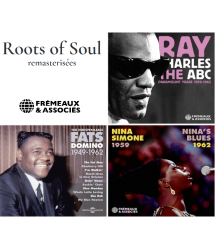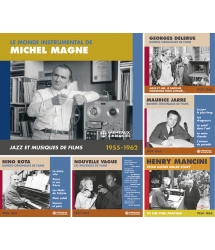"Louisiana Blues is a gem. Originally made for TV in 1992 by Jean-Pierre Bruneau and José Reynes, the film doesn't just include footage of some of the great names in Cajun and Zydeco music but paints a vivid picture of the local way of life and sets it in an historical context." Brian PETERS - Froots
"Louisiana Blues is a gem. Originally made for TV in 1992 by Jean-Pierre Bruneau and José Reynes, the film doesn't just include footage of some of the great names in Cajun and Zydeco music but paints a vivid picture of the local way of life and sets it in an historical context. Maps depict the passage of the Acadiens to Louisiana, historians and sociologists speak knowledgeably of the reasons the unique French culture has survived, and snippets of local life are beautifully filmed. A fisherman trawls the bayou for crawfish, families dressed in outlandish Mardi Gras costumes embrace and dance, a masked and hilariously drunk reveller tries to stay on his horse whilst brandishing a beer can and slurring the Mardi Gras Song. They know how to have a good time in these parts. Music is an inseparable part of life. Zydeco Joe, between sets in the local old folk's home hands his uncle Dudley Broussard a three row button box, and is rewarded with a snatch of expert playing from a man with his left arm paralyzed. The camera cuts from DL Menard jamming is hit song Porte en Arrière with Michael Doucet, to a shot of him planing timber in his rocking chair factory. Bands strut their stuff on front porches, and everywhere people are dancing, often pretty sexily. This is folk music in its truest sense. Of the musicians on view, none holds the attention better than the (now departed) Canray Fontenot, first jamming wirh Beausoleil, and later seen keening the ancient-sounding Bars de la Prison accompanied by his wildly lonesome fiddling, before relating a musical anecdote with a broad grin. There's dancehall footage of Nathan Williams and a very hoarse sounding Beau Jocque, and slightly dated-sounding , chest beating Cajun rock from Dennis Collet and Wayne Toups. Other, less celebrated players are given screen time, too, for Cajun and Creole music is not the preserve of an elite on a concert stage. These people don't need any "Respect Agenda" - they respect themselves, each other, and their culture. This film entertained, inspired and moved me." Brian Peters










